Overview
Salesforce integration is the process of connecting Salesforce CRM with other software or applications in the business, helping to create a smooth and unified flow of information between those software to improve work performance and optimize business processes. In the US, many Salesforce integration service providers appear with innovative solutions. This article will highlight the top 5 Salesforce integration providers in the US, helping you find the ideal partner to enhance your CRM system.
What is Salesforce?
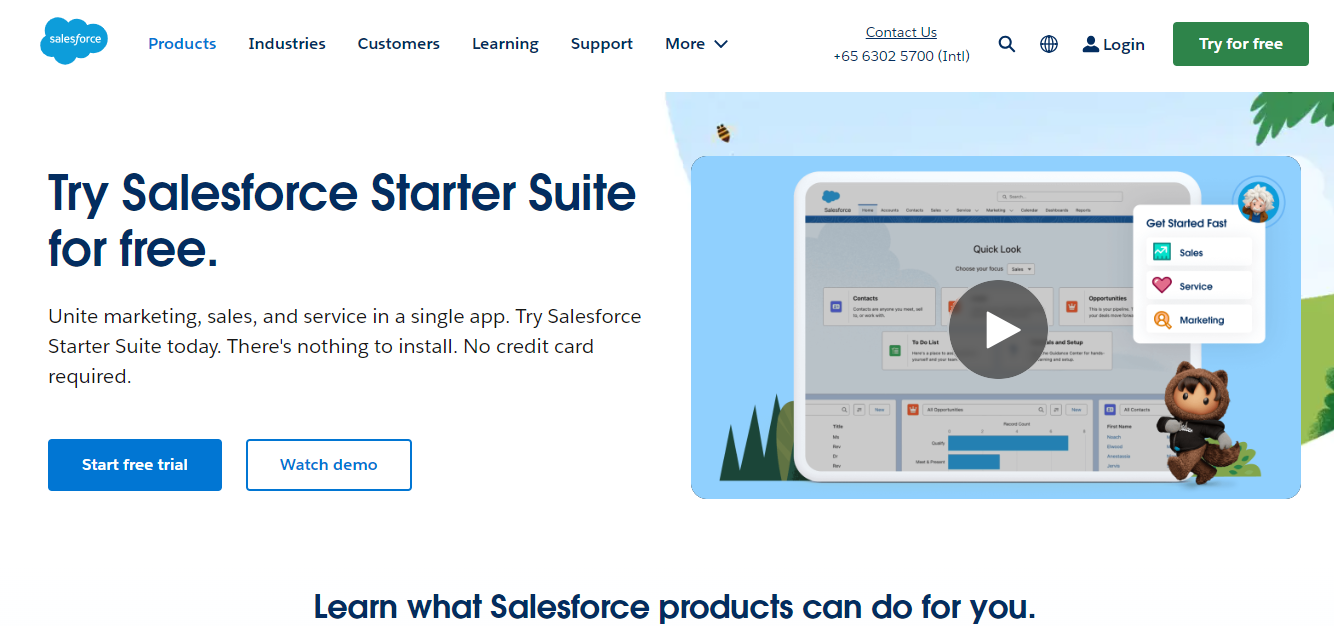
Salesforce is a world-leading customer relationship management (CRM) platform that provides tools and solutions for businesses to manage and optimize customer relationships. Developed on a cloud computing platform, Salesforce allows businesses to track and analyze customer data, manage sales, customer service, marketing, and many other business activities effectively.
According to a survey from The Tech Report, Salesforce’s revenue will reach over $31 billion in 2023, an increase of 18% compared to the previous year. The majority of this revenue comes from subscription and support services, accounting for 93.99% of total revenue.
Besides, Salesforce currently holds more than 23% of the global market share in the field of customer relationship management (CRM), far surpassing other competitors such as SAP, Oracle, Microsoft 365, and Adobe. The number of Salesforce customers currently exceeds 150,000 businesses worldwide, with the US accounting for 62% of Salesforce customers, the UK with 16.5%, France with 4.6%, and the Netherlands with 3.2%.
These figures not only demonstrate Salesforce’s enormous influence and strong growth in the field of Customer Relationship Management (CRM) globally but also highlight the practical and specific benefits that this company brings to customers. This means that user demand for Salesforce integration is increasing.
Why Salesforce integration?
Many of our customers shared that they have to manage numerous customer care channels. Every day, they need to check and use multiple channels to communicate with their customers. Additionally, during the customer care process, entering customer information into Salesforce CRM for management and storage is inevitable. However, the question they pose is: What should they do if, in the future, they have to care for thousands to hundreds of thousands of clients every day? Since then, they have come to us with the hope that their problem will be solved.
Salesforce is no exception, holding a substantial 23% market share in the CRM field, which is enough to prove its widespread popularity. In other words, companies using Salesforce are also facing challenges with centralized data management. Thus, Salesforce integration becomes a key factor for businesses to boost their operation more smoothly.
In addition to Salesforce, other CRMs, from local software to foreign software, customers are all interested in how to connect them. Each customer will have their own synchronization needs, as their operations, the software they use, and their customer care methods vary.
Some companies contact us when they need to synchronize orders from software such as eCommerce platforms, or POS to their CRM for centralized management. Besides order synchronization, some businesses also require message synchronization. They are using a variety of channels to take care of their customers. Beyond email or SMS, many companies utilize chat channels such as Messenger, WhatsApp, Viber, Line, Zalo, etc. The choice of chat channel depends on their market. For instance, Vietnamese clients popularly use the Zalo chat channel; therefore, businesses in Vietnam or foreign companies expanding into Vietnam will focus heavily on this channel.
In short, Salesforce integration not only helps businesses reduce manual effort and the risk of human error but also ensures information is updated consistently across all systems in real-time, delivering more accurate and reliable data. Moreover, automation can significantly lower operational and personnel costs as the need for manual intervention is minimized. And one of the top priorities for companies when looking for Salesforce integration is improving the customer experience. Businesses gain access to comprehensive customer data, facilitating more personalized and targeted services.
Top 5 Salesforce Integration Providers in the US
HexaSync
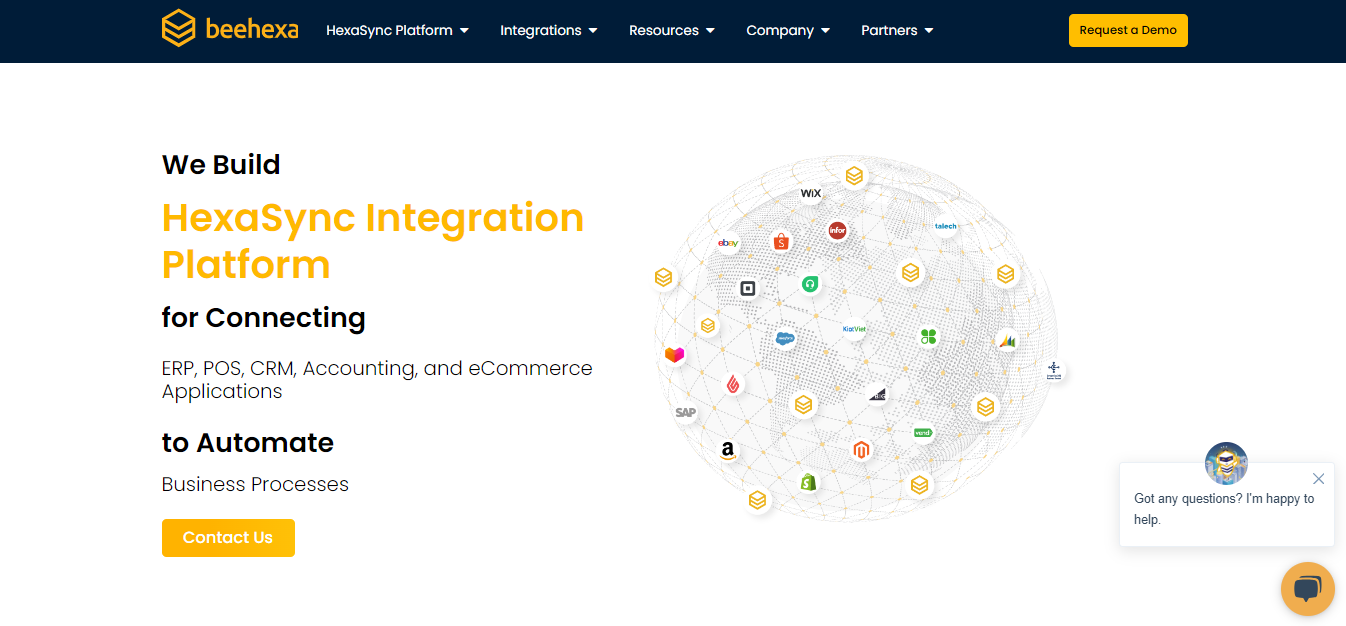
HexaSync Integration Platform is one of the leading integration systems that works as a middleware to connect multiple systems via API. This platform can connect 100+ systems, including eCommerce platforms, ERP, POS, CRM, Accounting, and more without transaction limitations.
Furthermore, HexaSync is developed to adapt to all customer synchronization requirements, including synchronizing orders, inventory, products, customers, messages, etc. This platform can also integrate legacy systems and modern SaaS applications. Besides, with a strong support team, HexaSync assists customers in deploying synchronization and continuous support after acceptance without requiring technical knowledge. Consequently, companies can expand their connections when they want to scale in the future without any worries.
HexaSync Key Features
High Performance
The HexaSync platform ensures high performance by synchronizing data as desired time by clients using the Scheduler feature, helping to maintain consistent data and support more efficient business operations.
Agile Scalability
With flexible support and development capabilities, HexaSync enables businesses to quickly adapt and scale their integrations as their needs evolve, without worrying about costs or technical issues.
No Hidden Cost
HexaSync offers a scalable pricing model where users pay only for the level of service they need. Specifically, there will be no hidden costs during the integration process if small tasks arise or if there are any updates or changes to the API of the systems.
Comprehensive Integration Profiles
HexaSync supports multiple integration configurations with over 100+ systems, ranging from legacy to SaaS. This platform can handle simple to complex tasks on most systems, including popular applications such as Shopify, Magento, BigCommerce, Microsoft Dynamics, QuickBooks, SAP, etc.
Boomi
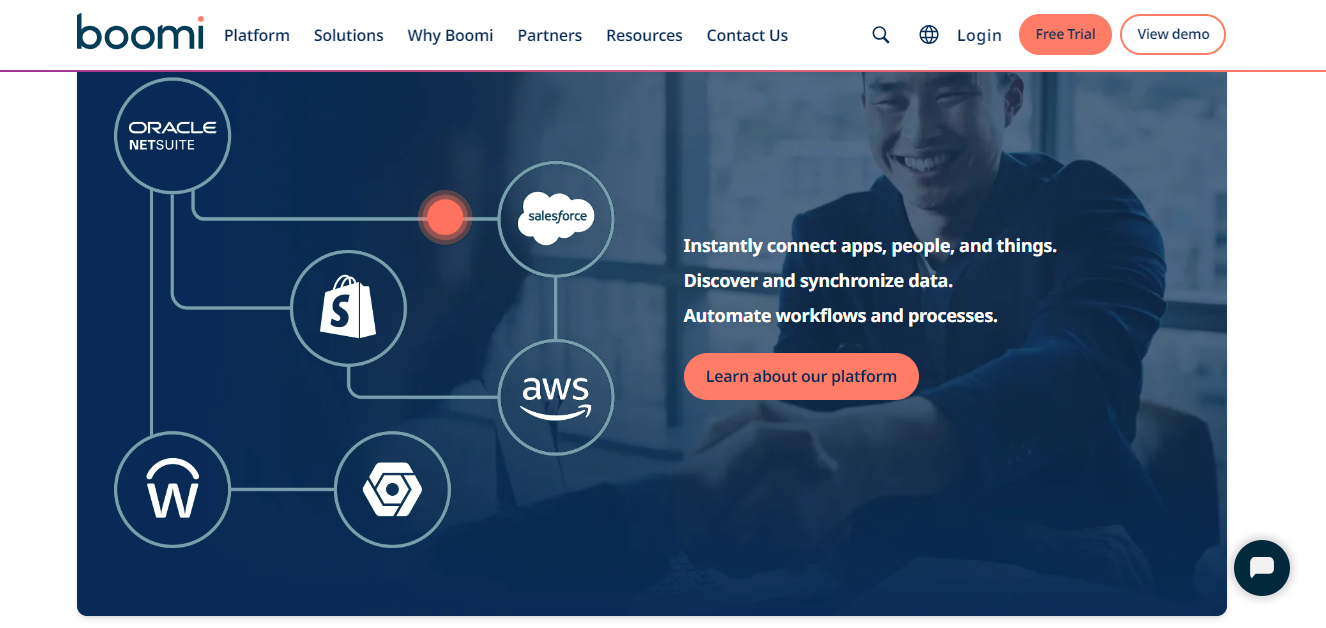
Boomi is a cloud integration platform as a service (iPaaS) that simplifies connecting applications, data, and systems across diverse environments. With its low-code approach, Boomi enables businesses to optimize integration processes, enhance performance, and accelerate digital transformation.
Boomi Key Features
Visual Interface
Boomi provides a drag-and-drop interface with minimal coding to help users design integration processes intuitively without the need for technical expertise.
API Management
With API management features, Boomi allows users to create, publish, and manage APIs. This helps third parties access data and services.
Community and Support
Boomi has a vibrant user community and regularly provides documentation and enthusiastic customer support.
Scalability
With the advantage of being a cloud-based solution, Boomi can handle the growing data volume and integration needs of businesses.
Zapier
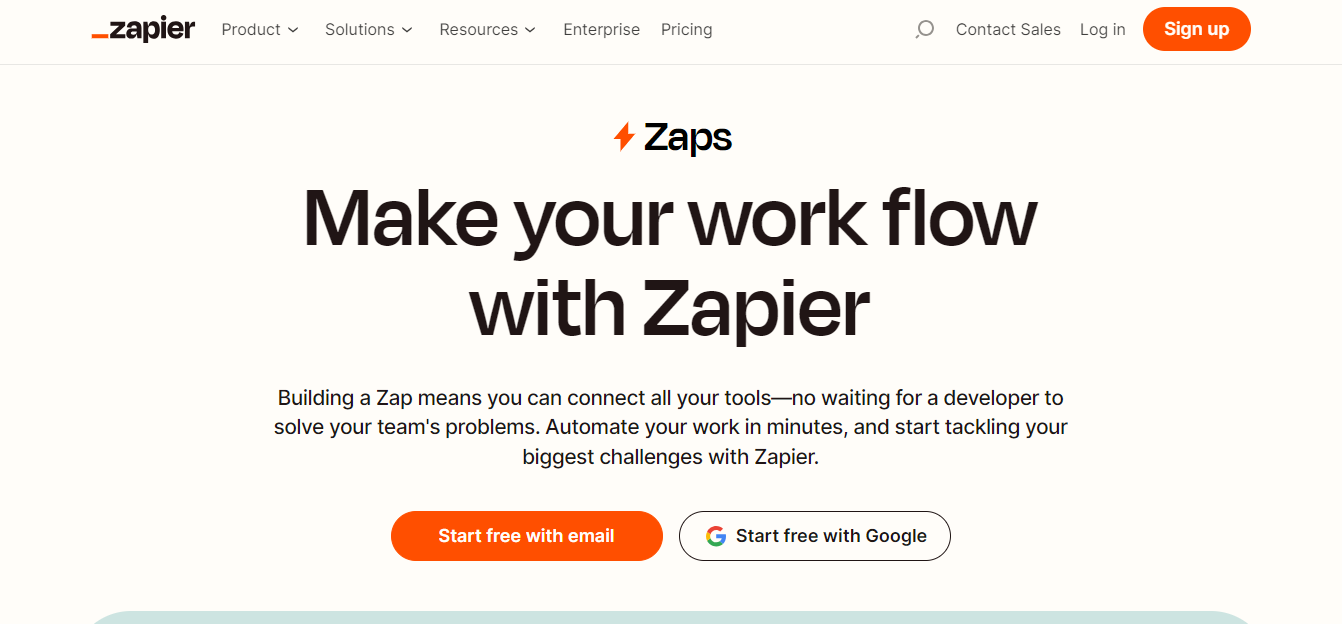
Zapier Automation Platform is a no-code integration platform with the ability to integrate over 6,000 apps, including popular tools like Google Workspace, Trello, Slack, Salesforce, Mailchimp, etc. This is a web automation tool used to connect online applications and services. It allows you to automate and optimize online workflows without coding, including tasks like managing social media, projects, notes, emails, and meetings.
Zapier Key Features
Friendly Interface
With Zapier’s no-code interface, users can set up and manage integrations without technical expertise. Zapier’s drag-and-drop functionality also simplifies the Zap creation process.
Automated Workflows (Zaps)
Zapier features Zap is an automated workflow that includes a trigger and one or more actions.
Wide Range of Integrations
Zapier can connect more than 6,000 applications. With this extensive library, users are connected to virtually any combination of applications.
Task History
Zapier keeps a history of all tasks performed by Zaps, giving users the ability to monitor and troubleshoot problems in their workflows.
Collaborative Workspaces
With collaboration features, teams can share and manage Zaps collectively, which is useful for companies with many users working on automation projects.
Workato
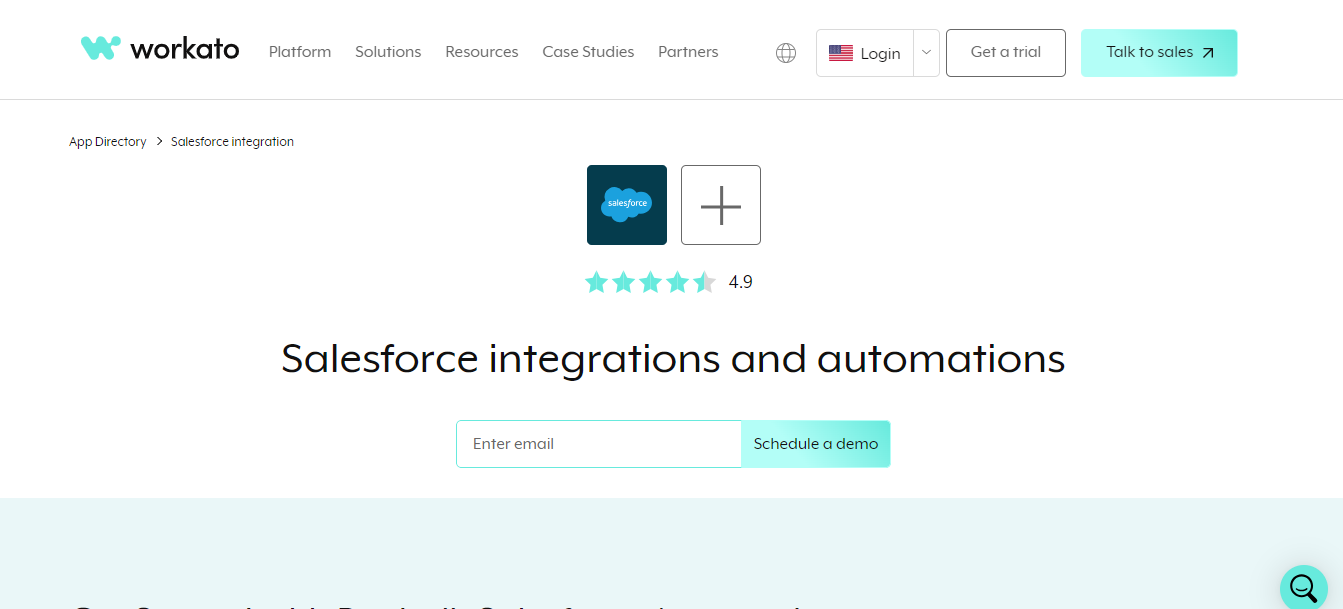
Workato is a powerful and flexible integration platform that utilizes artificial intelligence (AI) to automate processes that detect and recommend automated actions. This platform allows users to handle complex integration processes with multiple tasks and conditions.
Workato Key Features
Low-Code/No-Code Interface
Workato is designed to be user-friendly, supporting non-technical users in building integration solutions through an intuitive interface.
Recipe Library
This platform has a library of pre-built recipes covering common business processes to shorten the time to deploy solutions.
Expandability
Workato adapts to a wide range of integration and automation requests, from simple to complex tasks, when customers need to expand integration.
Security and Compliance
With robust security features, including data encryption and compliance with industry standards such as GDPR and HIPAA, Workato gives customers peace of mind about the security of their business data.
MuleSoft
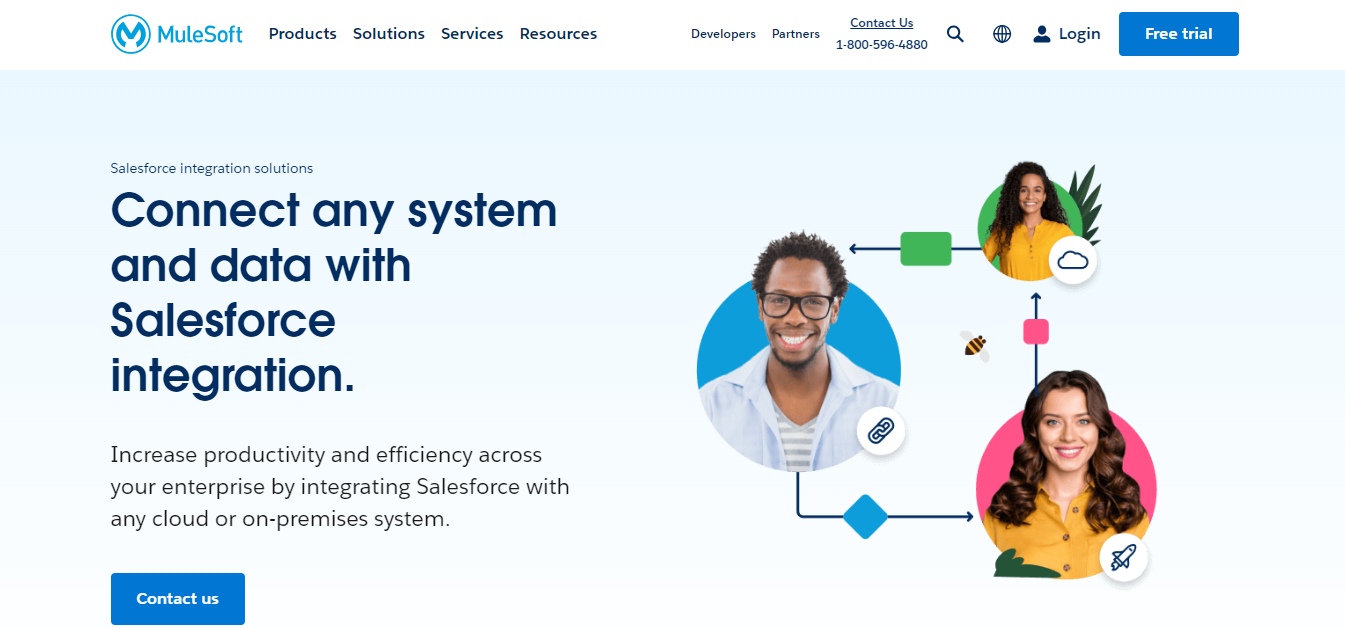
MuleSoft is an integration provider that uses an ESB (Enterprise Service Bus) based architecture, capable of easily integrating complex applications. This architecture allows the organization to scale and adapt to changing business needs.
MuleSoft Key Features
Unified Platform
Anypoint Platform from MuleSoft provides a unified solution for API management and integration, reducing the complexity of managing multiple tools.
Low-Code/No-Code Development
MuleSoft includes a graphical design environment that helps users create integrations and APIs with minimal coding.
Pre-Built Connectors
The platform provides pre-built connectors for popular applications and systems, facilitating fast and efficient integration for users.
Scalability
MuleSoft is designed to support high-volume data processing and complex integration scenarios. Therefore, this platform can support businesses ranging from small and medium to enterprises.
Security
With comprehensive security features, including threat protection, encryption, and access control, the platform ensures data and integration security.
Final Words
These Salesforce integration vendors stand out for their optimized solutions and proven track records in integrating systems in general and Salesforce in particular. However, it is essential for businesses to evaluate their specific integration needs and consider factors such as price, scalability, potential risks, and support services before choosing a provider to make informed decisions.
